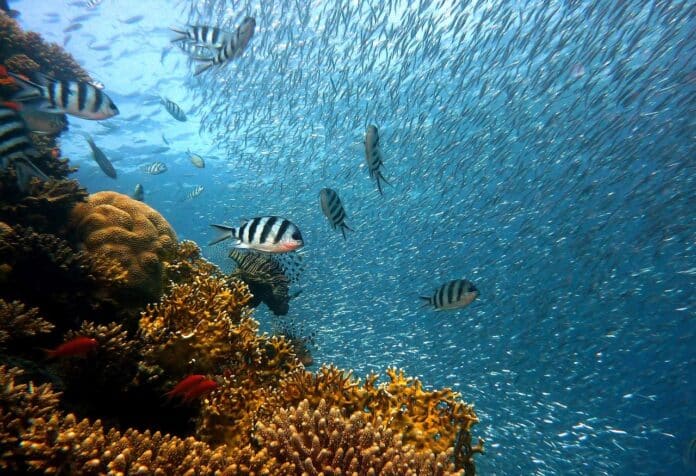Major degradations of coral reefs have been seen worldwide during the last few decades because of climate change and local stresses associated with human activities. Coral reefs are among the most productive and ecologically various ecosystems. Yet, they are severely threatened by climate change and human-caused local disturbances.
The Reef Environment Centralised Information System (RECIFS) is a web application that serves as a single repository for all datasets on reef environments around the world.
RECIFS, developed by EPFL scientists and the ENTROPIE research group on marine ecology for the Pacific and Indian Oceans, allows researchers to compare different datasets and obtain important insight into how corals are or are not able to adapt to climate change and stresses from human activities.
RECIFS files are from the public domain and contain approximately four decades of environmental measurements, including physical and chemical aspects. These data can be utilized to build theories about how specific environmental variables influence reef ecosystem dynamics and, in turn, to develop effective conservation policies.
They also have information on human activity near coral reefs, such as boat traffic, surrounding cities and population density, and agricultural land usage.
Oliver Selmoni, the study’s lead author, who holds a Ph.D. in environmental engineering from EPFL, said, “By creating a single repository, we can identify the factors that triggered irreversible processes in the past, like the coral bleaching caused by heat waves. We can also investigate why some coral reefs are more resistant to these effects and set up protected marine areas where needed.” Selmoni, who won the 2020 Chorafas Prize for his research on corals.”
The researcher highlights the damage caused by recurrent heat waves induced by climate change over the last 20 years. He cites the damage caused by successive heat waves over the last 20 years as an example. The RECIFS repository is a collection of environmental data that can be used to help preserve coral reefs.
Selmoni said, “How many heat waves need to occur, and how severe do they need to be, for corals to be able to adapt rather than perish? Does local water pollution make reef ecosystems stronger or, on the contrary, more fragile? These are the kinds of questions we’ll be able to answer with the RECIFS repository.” These problems are especially urgent given that 14% of hard corals have been lost worldwide in the last decade, mainly because of unusual heat waves.”
EPFL’s Laboratory led it for Biological Geochemistry’s Geospatial Molecular Epidemiology (GEOME) research group. Characterizing coral diversity in the Caribbean based on a dataset containing the findings of photographic surveys of reefs throughout the area, and conserving the stripey snapper, a fish located on Australia’s northeastern coast, are two examples of how RECIFS might be implemented.
The second example is the protection of the stripey snapper, a fish that spawns in reefs off Australia’s northeastern coast. The authors of this work analyzed a set of existing genomics data from 1,016 stripey snapper individuals to identify genetic markers that could suggest a greater ability to adapt to local climate conditions.
According to a review of 302 environmental factors, fish in the Shark Bay area appear to have an outstanding adaptation capacity to both temperature stress and phosphate concentration fluctuation.
The new study aims to provide scientists and conservation stakeholders with easy, open access to the environmental data they require to help save coral reefs. The repository will be updated annually and may be expanded further.
Journal Reference:
- Oliver Selmoni, Gaël Lecellier, etal. The Reef Environment Centralized Information System (RECIFS): An integrated geo-environmental database for coral reef research and conservation.Global Ecology and Biogeography. DOI: 10.1111/geb.13657
